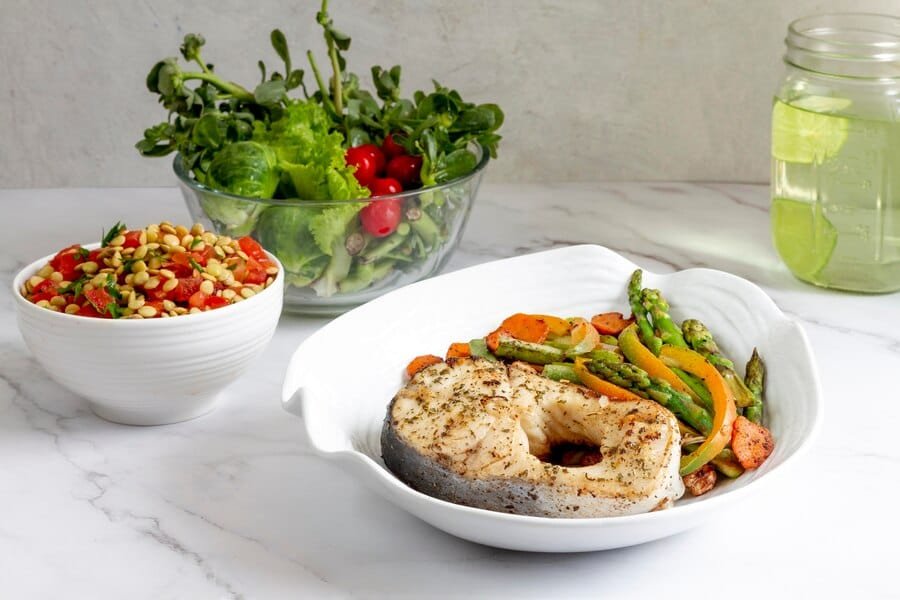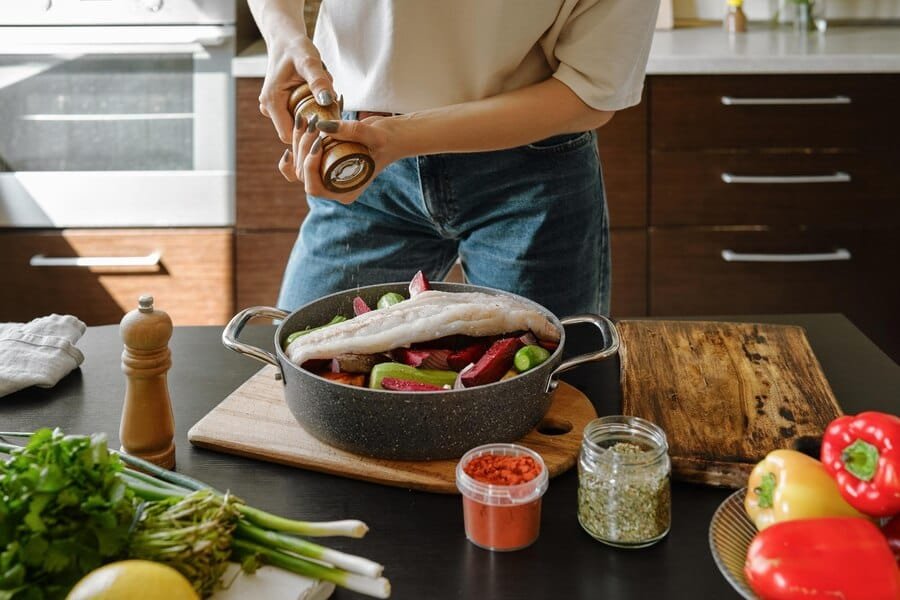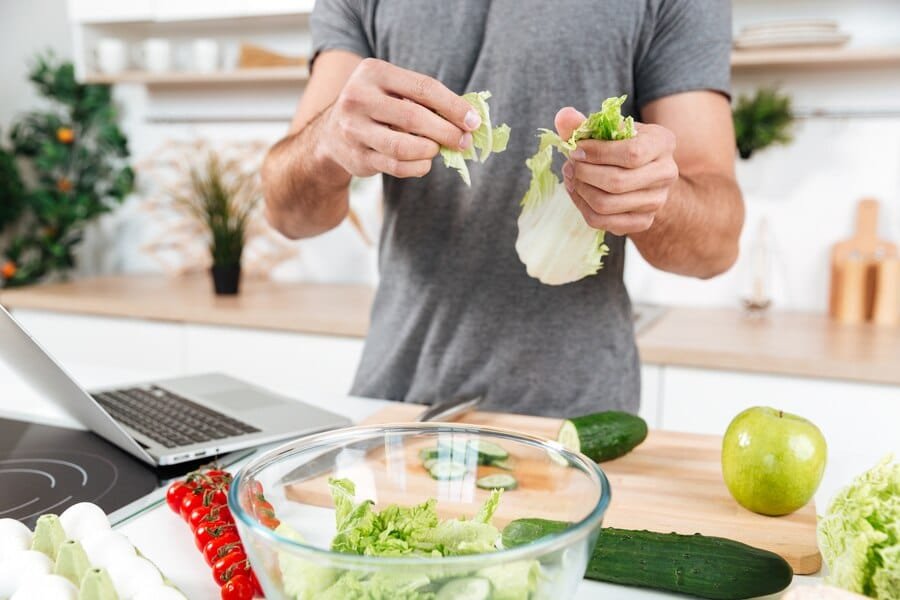
In today’s fast-paced world, finding time to prepare healthy meals can feel like an insurmountable challenge. Yet, the growing body of research from institutions like Harvard School of Public Health suggests that home-cooked meals not only improve our nutritional intake but also contribute significantly to better family relationships and overall wellness. The good news? You don’t need hours in the kitchen to create nutritious, delicious dinners. Let’s explore how to transform your weeknight cooking routine with efficient, healthy recipes that take just 30 minutes or less.
Read Also:
- Plant-Based Meals: Your Complete Guide to Sustainable Weight Loss Through Natural Nutrition
- USA Curry Recipes for Beginners: Easy & Flavorful Dishes You Can Make at Home
- Delicious and Creative Lunchbox Solutions: Quick Recipes That Win Over Picky Eaters
- Kid-Friendly Pizza Recipes: Sneaking in Vegetables for Healthy, Delicious Family Meals
Understanding the Basics of Quick, Healthy Meal Preparation
The foundation of quick, healthy cooking lies in smart preparation and understanding basic nutritional principles. According to the American Heart Association, a balanced meal should include lean proteins, whole grains, and plenty of vegetables. The Mediterranean diet, consistently ranked as one of the healthiest dietary patterns by nutrition experts, offers an excellent framework for creating these balanced meals. By keeping your pantry stocked with essential ingredients like whole grains, legumes, and healthy oils, you can significantly reduce preparation time while maintaining nutritional value.
Essential Kitchen Tools for 30-Minute Cooking Success
Professional chefs and culinary experts at Cooking Light magazine emphasize that having the right tools can make or break your quick-cooking success. A sharp chef’s knife, several cutting boards (to prevent cross-contamination between proteins and produce), and a few good-quality pans are essential. The Food Network’s test kitchen recommends investing in a large non-stick skillet, a heavy-bottom saucepan, and a sheet pan for maximum versatility in quick-cooking scenarios. These basic tools, combined with time-saving appliances like a food processor or instant-read thermometer, can dramatically streamline your cooking process.
Smart Meal Planning Strategies
Successful 30-minute cooking relies heavily on effective meal planning. The Mayo Clinic’s nutrition department suggests dedicating time each weekend to plan your weekly meals, creating a comprehensive shopping list, and doing basic prep work like washing and chopping vegetables. This approach not only saves time during busy weeknights but also reduces food waste and helps maintain a balanced diet. Consider keeping a rotating list of favorite quick recipes and organizing your refrigerator to keep frequently used ingredients easily accessible.
10 Power Ingredients for Quick, Healthy Cooking
Nutritionists at EatingWell magazine recommend stocking your kitchen with versatile, nutrient-dense ingredients that can form the basis of multiple quick meals. Quinoa, for instance, cooks in just 15 minutes and provides complete protein. Pre-cooked lentils, canned beans (look for low-sodium varieties), and quick-cooking proteins like fish fillets can significantly reduce cooking time while maintaining nutritional value. Fresh herbs, citrus fruits, and spice blends can quickly add flavor without excessive calories or preparation time.
One-Pan Wonders: The Ultimate Time-Saving Solution
Sheet pan and skillet meals have revolutionized quick cooking, according to culinary experts at Bon Appétit. These cooking methods not only minimize cleanup but also allow for efficient cooking of multiple ingredients simultaneously. For example, you can roast salmon fillets alongside asparagus and cherry tomatoes on a single sheet pan, creating a complete meal in under 30 minutes. The key is understanding timing and temperature requirements for different ingredients to ensure everything finishes cooking at the same time.
The Role of Batch Cooking in 30-Minute Meals
While the focus is on 30-minute cooking, incorporating elements of batch cooking can make these quick meals even more efficient. The James Beard Foundation recommends preparing larger quantities of versatile ingredients like roasted vegetables, cooked grains, or protein during weekend meal prep. These components can then be repurposed throughout the week in various quick-assembly meals, maintaining both variety and nutrition while reducing daily cooking time.
Healthy Cooking Techniques for Speed
The American Diabetes Association emphasizes that cooking methods like stir-frying, broiling, and steam-sautéing not only preserve nutrients but also significantly reduce cooking time. These techniques, when combined with proper heat management and ingredient preparation, can help you create healthy meals quickly without sacrificing flavor or nutritional value. High-heat cooking methods, when used appropriately, can develop deep flavors in vegetables and proteins in minimal time.
Incorporating Global Flavors for Variety
Culinary experts at Saveur magazine note that many traditional cuisines offer excellent templates for quick, healthy cooking. Mediterranean-style dishes often feature simple preparations of fresh ingredients, while Asian stir-fries demonstrate how high-heat cooking can quickly transform raw ingredients into flavorful meals. By familiarizing yourself with various global cooking techniques and flavor profiles, you can create diverse, exciting meals within the 30-minute timeframe.
Making Time-Saving Substitutions Without Sacrificing Nutrition
Registered dietitians at Prevention magazine suggest several smart substitutions that can save time without compromising nutritional value. Pre-cut vegetables, while slightly more expensive, can significantly reduce preparation time. Similarly, quick-cooking whole grains like bulgur or instant brown rice can replace longer-cooking alternatives in many recipes. The key is choosing convenience products thoughtfully, focusing on those that maintain nutritional integrity while saving valuable time.
Building a Repertoire of Go-To Recipes
Success with 30-minute cooking ultimately depends on having a reliable collection of tested recipes that you can execute efficiently. Culinary experts at America’s Test Kitchen recommend starting with 5-7 basic recipes that can be modified based on available ingredients and preferences. As you become more comfortable with quick-cooking techniques, you can expand this repertoire, incorporating seasonal variations and new flavor combinations while maintaining the 30-minute timeframe.
The Future of Quick, Healthy Cooking
As our understanding of nutrition and cooking technology continues to evolve, the possibilities for quick, healthy meals expand. Food scientists and culinary innovators are constantly developing new ingredients and techniques that can make healthy cooking more accessible and efficient. By staying informed about these developments while maintaining a foundation in basic cooking principles, you can continue to create nutritious, delicious meals that fit within your busy schedule.
The key to successful 30-minute healthy cooking lies in preparation, organization, and understanding basic culinary principles. By incorporating these strategies and maintaining a well-stocked kitchen, you can consistently prepare nutritious meals that support your health goals while respecting your time constraints. Remember that becoming efficient at quick, healthy cooking is a skill that develops with practice – start with simple recipes and gradually expand your repertoire as your confidence grows.
Note: While the health and nutrition information in this article draws from established scientific understanding, it’s always advisable to consult with healthcare professionals or registered dietitians for personalized dietary advice. The cooking techniques and recipes mentioned can be adapted to accommodate various dietary requirements and preferences.


